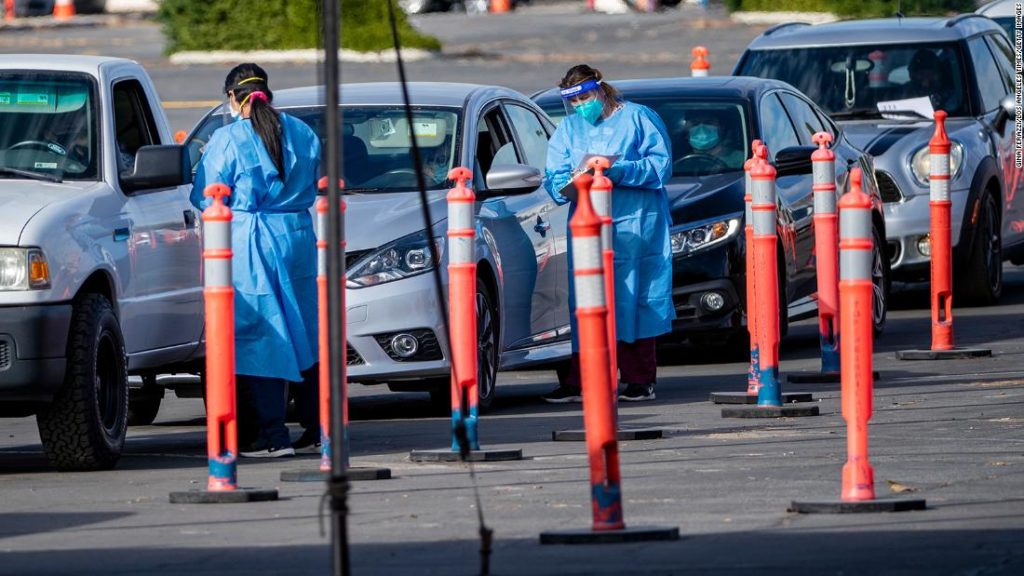Now that the Food and Drug Administration has authorized Moderna’s vaccine, advisers to the CDC must now vote to recommend it, and the CDC must accept that recommendation before vaccinations can begin. The advisory group is scheduled to meet Saturday morning.
The second green light comes as hundreds of Americans across the country have already received their first dose of the Pfizer and BioNTech vaccine, which was authorized by the FDA last week.
“This is the beginning of the end,” Adams told CNN Friday night. “Make no mistake about it, it’s going to be a hard couple of weeks. We’ve still got work to do to get over this surge, but I want people to be encouraged.”
He said he chose to get the vaccine on TV because he wanted the American public to “understand I’ve looked at the data, I’ve worked with the companies and I felt safe getting the vaccine.”
“Really, this is a life and death message for Black people about the coronavirus,” Dr. Valerie Montgomery Rice said.
A raging pandemic that’s far from over
Despite the promising news, it’s not quite the end. In many parts of the US, Covid-19 is still raging across communities.
- More than 18,000 Americans died of Covid-19 in the past week. The University of Washington’s Institute for Health Metrics and Evaluation projects another more than 237,000 Americans will die of Covid-19 over the next three months.
- For the 13th day in a row, the country beat its own hospitalization record. There are now more than 114,700 Covid-19 patients across the US, according to the COVID Tracking Project.
- For the past week, the US reported an average of more than 219,000 new Covid-19 infections every day. On Friday, the country broke a record, reporting more than 249,700 new infections.
- Three Alaska health care workers had allergic reactions after receiving a dose of the Pfizer and BioNTech vaccine this week. The FDA has said there is a “remote chance” the vaccine could cause a severe allergic reaction. Because so many people are taking the vaccine at once, the public may perceive these severe reactions as being far more common than they actually are.
Johns Hopkins launches vaccine tracker
The Johns Hopkins Coronavirus Resource Center has now launched a new vaccine tracking tool that offers “daily updates and nationwide perspective on the progress of the COVID-19 vaccination rollout” in the US.
The tool currently captures data from 10 states that have begun publicly reporting the number of vaccines administered, including Connecticut, Idaho, Michigan, Nebraska, Ohio, South Dakota, Texas, Utah and West Virginia.
“I want to warn everyone that there’s going to be some hiccups because this is all very new,” Beth Blauer, executive director of the Johns Hopkins University Centers for Civic Impact, said. “The data is getting out there faster than we’ve ever seen data from a government being produced, and so we have to give a little grace to those states that are doing that reporting.”
Massachusetts health officials said it wasn’t clear why the dose numbers have changed.
“The Department of Public Health now expects to receive … a little bit more than 145,000 doses of the Pfizer vaccine by the end of December — a number that has been reduced from 180,000, that’s about a 20% decline,” Secretary of Health and Human Services Marylou Sudders said.
“At this time, it’s not clear to us why the shipment amounts have been adjusted,” he said. “We’re certainly frustrated that we won’t be receiving the amount that we expected in the first wave and are working to get clarity on what this means,” the governor added.
Different states, different measures
As state and federal officials gear up for more vaccine shipments, different parts of the country are reporting different Covid-19 trends.
In New York, Gov. Andrew Cuomo said hospitals are at “crisis management” mode and capacity has been added at facilities across the state.
“I believe hospitals are going to be able to manage this,” he said. “We learned a lot in the spring.”
“L.A. County is moving toward becoming the epicenter of the pandemic,” Dr. Brad Spellberg, chief medical officer at LAC + USC Medical Center, warned Friday.
“We’re getting crushed,” Spellberg added about the county’s hospitals. “I’m not going to sugarcoat this. We are getting crushed.”
In-person classes can resume at high schools and indoor venues such as movie theaters can reopen with capacity limits and other safety precautions, the governor said. Outdoor group fitness activities and outdoor noncontact sports can also resume.
CNN’s Ben Tinker, Amanda Watts, Hollie Silverman, Deidre McPhillips, Jen Christensen and Arman Azad contributed to this report.
You may also like
-
UK coronavirus variant has been reported in 86 countries, WHO says
-
NASA technology can help save whale sharks says Australian marine biologist and ECOCEAN founder, Brad Norman
-
California Twentynine Palms: Explosives are missing from the nation’s largest Marine Corps base and an investigation is underway
-
Trump unhappy with his impeachment attorney’s performance, sources say
-
Lunar New Year 2021: Ushering in the Year of the Ox

